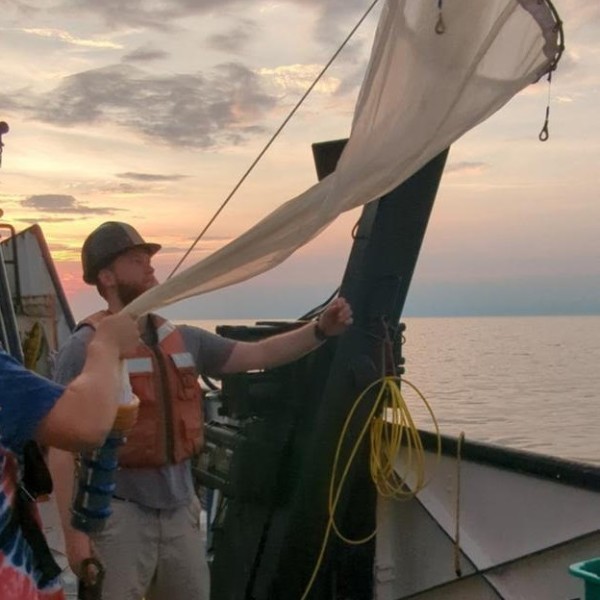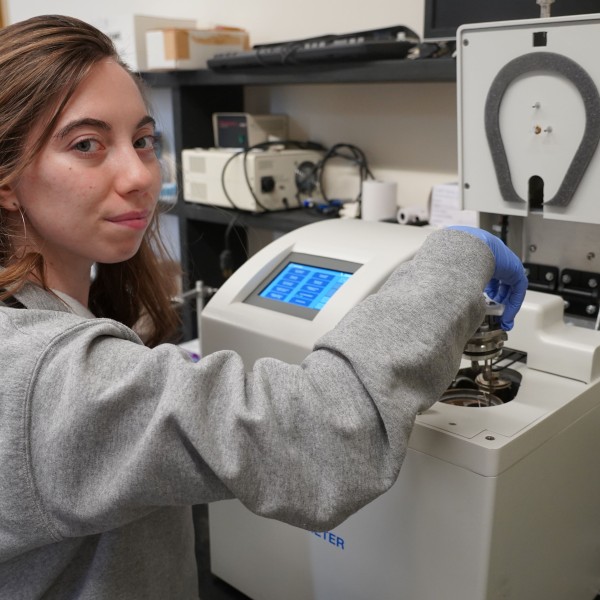How Holly Jean Buck Ph.D. ‘17 is shaping the debate on environmental repair
As the pace and scale of climate change increases policymakers are grappling with big questions about how to contain the threats. From forest management policies to more radical ideas like manipulating the atmosphere to block solar radiation, policy considerations to modify the environment have major impacts on people and communities all over the world. But who gets to design these environmental modifications, and who decides if and how they are implemented? Those questions animate the work of Holly Jean Buck Ph.D. ’17, who as a Ph.D. student in development sociology studied the design and decision making around environmental modification technologies that are used for ecological restoration.
Climate change is leading to innovative strategies to curb or contain environmental damage. What do people need to be thinking about today and in the years ahead?
The risks of non-inclusive, non-public interest technologies for modifying the environment are incredibly high. There’s an obvious potential for maladaptation or risks to the Sustainable Development Goals, depending on how environmental modifications are implemented. We’ve witnessed the ways in which forest carbon projects can fail to deliver, or how the boom in biofuels had unintended consequences for vulnerable people. For example, in some areas, projects sold forest carbon credits but then the trees were cut down, and in other places, speculation on land for biofuels led to communities being displaced from their land. Yet the potential of techniques like carbon removal to ameliorate ecological harm is great, so we can’t write off these technologies — we need to figure out how to get them to work for communities.
My doctoral research at Cornell focused on public engagement with emerging technologies for environmental modification. I explored several examples from both ecological restoration and efforts to intervene in the climate system, such as carbon removal technologies or strategies for cooling the earth through blocking sunlight. I homed in on a core question: who gets to design and make decisions about environmental modification technologies? In what ways can the public help shape these technologies and guide how they are implemented?
I hope that my research can encourage environmentalists to engage with the future of these emerging technologies and approaches, particularly industrial carbon capture. I hope that my writing can also help shift the window of considering managed decline of fossil fuels as not radical but a normal and obvious approach to climate change, especially in the climate and energy policy world.
More broadly, I hope my research can help people actively engage in imagining different environmental futures, rather than giving into technological determinism and despair. I think the arts and architecture have important roles here, and I’m lucky to collaborate with not just biophysical scientists but also artists in my current position.
You have been a prolific writer on issues of climate, environmental policy and social questions. Tell us more about your book projects.
After Geoengineering explores best and worst-case scenarios for both carbon removal and solar climate intervention. There are some far-reaching, even radical climate strategies scientists are testing, like putting aerosols into the stratosphere to reflect incoming sunlight. The basic idea behind the book is that if environmentalists surrender to this nature-technology binary and reject technological approaches to climate intervention, then we lose the ability to shape these technologies — and some of these could be really important.
I’m also finishing revisions on my new book, Ending Fossil Fuels: Why Net Zero Is Not Enough, which should be out in October 2021 with Verso Books. The book explains how a focus on net zero climate goals misses the need to phase out production of fossil fuels, and it outlines a framework for how to think about the managed decline of the fossil fuel industry. There are many different policy ideas at work here, and the book explores the pluses and minuses at play as society moves toward an economy without fossil fuels.
How did your time in the program influence your career or your research focus?
The structure of the Ph.D. allowed me to put together a committee that was truly interdisciplinary, with advisors from engineering, ecology and evolutionary biology, science and technology studies and development sociology. I was also lucky to receive an Integrative Graduate Education and Research Traineeship (IGERT) fellowship from the National Science Foundation, which involved working for two years with an interdisciplinary team, where we did a research project in Ethiopia regarding soil mapping, as well as studied together. This interdisciplinary experience set me up really well for both my interdisciplinary, applied postdoc at UCLA and my current position at University of Buffalo, where I’m a founding member of the new interdisciplinary Department of Environment and Sustainability.
Currently, I’m working on two collaborative research projects at the University of Buffalo around carbon removal — one understanding stakeholder ideas about carbon capture and storage in California, and another that’s a comparative analysis of carbon removal projects in the US and the EU. I’m also working with colleagues in the nonprofit world on research about how to incorporate environmental justice into carbon removal policy, which is a topic of growing interest with the new administration.
What was the most impactful or memorable experience of your time in the Ph.D. program?
Being a part of a cohort of inspiring women who were doing amazing research around the world and in New York State. For example, Youjin Chung, who is now an assistant professor at UC Berkeley, was researching a large-scale land deal in Tanzania and using photovoice with community members to understand the implications for the community, with a focus on gender. Ellie Andrews was exploring how beekeepers in New York State and beyond are navigating threats to honeybees. Tess Pendergrast was an inspiration for her passion for teaching and environmental justice, and Katie Rainwater was an inspiration for her study of both Bengali and Thai languages. I feel really lucky to have been able to learn from these women.
About the author
Holly Jean Buck Ph.D. '17
Holly Jean Buck received her Ph.D. in Development Sociology from Cornell University. She is an assistant professor at the University of Buffalo and author of After Geoengineering and the forthcoming Ending Fossil Fuels: Why Net Zero Is Not Enough. She is an expert in environmental policy, climate change policy, geoengineering, carbon capture, climate adaptation and environmental justice.

Keep Exploring

News
- Biological Field Station
- Ashley School of Global Development and the Environment
- Natural Resources and the Environment Section

Field Note
- Animal Science
- Animals
- Climate Change

We openly share valuable knowledge.
Sign up for more insights, discoveries and solutions.


